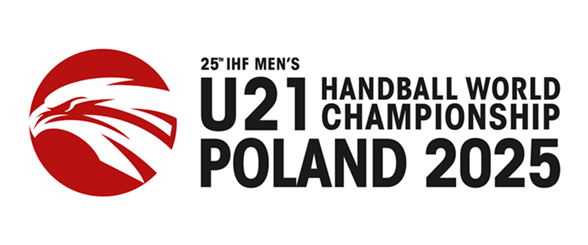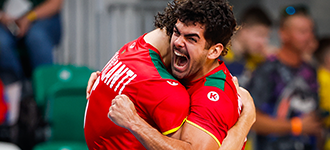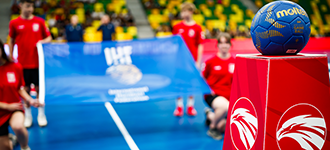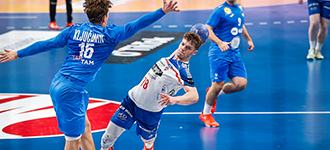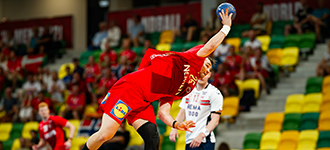Månsson shines, as Sweden produce another centre back for the future
26 Jun. 2025

Over a period of 10 years, between 2003 and 2013, Sweden have won the IHF Men’s Junior World Championship three times – in 2003, 2007 and 2013. For the past few years, they have been stuck in purgatory, finishing 15th in 2017, 11th in 2019 and 12th in 2023.
But at the continental level, they have been a constant threat, ending up on the fourth place at the M20 EHF EURO 2022 and fifth at the M20 EHF EURO 2024. And with a talent like Axel Månsson in the squad, Sweden were poised for a breakthrough result at Poland 2025.
Månsson has been constantly touted as one of the next best things in Swedish handball over the past years, earning rave reviews from experts for his play. The Scandinavian side has a certain history of producing absolutely world class centre backs. And the current playmaker of the Sweden men’s junior national team could be the next name on that lengthy list.
The 20-year-old centre back was the All-Star centre back at the M18 EHF EURO 2022, when Sweden conceded a 32:34 loss in the final against Spain, where he scored a whopping 13 goals.
At the 2025 IHF Men’s Junior World Championship, he is Sweden’s top scorer, with 49 goals, and the third best scorer in the competition, with only four goal less than Faroe Islands’ Oli Mittun, with a great chance of finishing on the podium in the top goal scorer standings.
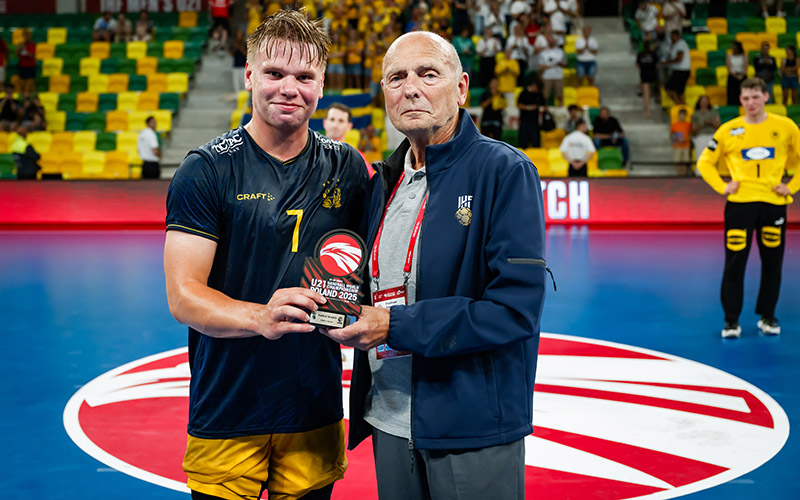
But results mean everything for Månsson. And with Sweden on the cusp of winning a medal at Poland 2025, having qualified to the quarter-finals, Månsson was buzzing at the end of the quarter-final against Germany.
“It's just fun to play with all my teammates, this is what I like the most. Today I was the top scorer of the match and maybe I scored a lot of penalties, but I am just happy we won the match,” said Månsson.
Indeed, in Sweden’s unexpected 32:26 win, Månsson had nine goals from 15 shots and added one more assist, becoming crucial in important moments, as from his 49 goals in the competition, 20 came from the nine-metre line.
The diminutive centre back is only 1.75m tall, the second shortest player in Sweden’s squad, but he uses this as an advantage, becoming a crucial dynamo in the Scandinavian side’s attack, with some excellent footwork, creative shooting and a big handball IQ.
Despite being only 19 years old, his penchant for scoring was absolutely clear, being the top goal scorer in the Swedish league in the 2023/24 season, when he scored 169 goals. Last summer, he moved to IFK Kristianstad, one of the top club teams in Sweden and was the fifth best scorer in the competition, with 147 goals.
Yet again, Månsson only thinks about the team and the team’s performance.
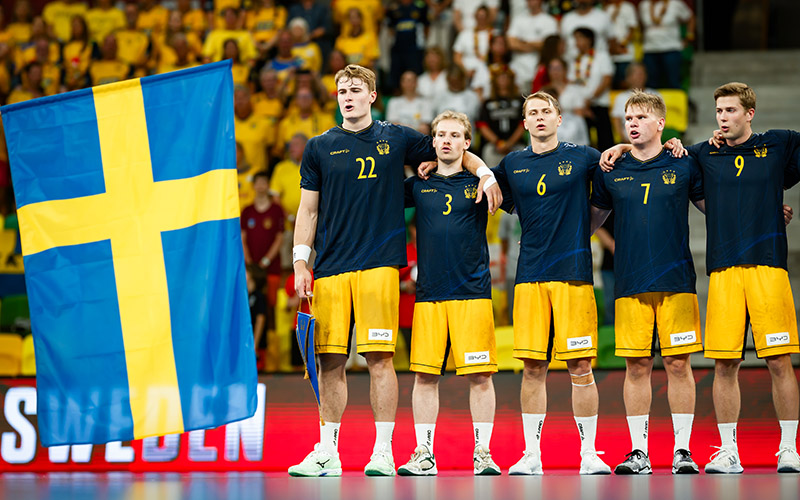
“We had a tough match against Portugal in the main round, we lost, so I think we were the underdog against Germany. But we played very well, especially in defence, despite our two main defenders seeing red cards throughout the match. Now we think about the semi-final,” says the centre back.
That kind of selfish thinking might have been helped by the fact that Månsson comes from a handball family, which knows a thing or two – or maybe even more – about the sport.
His father, Ola, was a former player and is currently a coach, having led women’s club side H65 Höör over the past nine years. Axel’s mother, Helen, also played as a right back in the Swedish first leg.
And then there’s Månsson’s bigger brother, Albert, also plays as a centre back, plying his trade for Alingsås HK, after he featured at Helsingborg. His sister, Majken, who is 17 years old, will probably be a future Swedish national team player too, having already impressed in the younger age categories.
Therefore, for Axel, it could not have been any different. And now, as the best scorer of this Sweden team, the future looks bright, especially as this will be the last competition in the younger age categories for him, with a change in the senior national team already underway.
But until then, Månsson has two more matches to play for the Sweden junior team, at Poland 2025. The first one is another Scandinavian derby against Denmark, a team which has not lost any match so far in the competition.
Win that and the final will be looming, Sweden’s seventh in history: three lost in 1985, 1991 and 1999 and the three won in 2003, 2007 and 2013.


